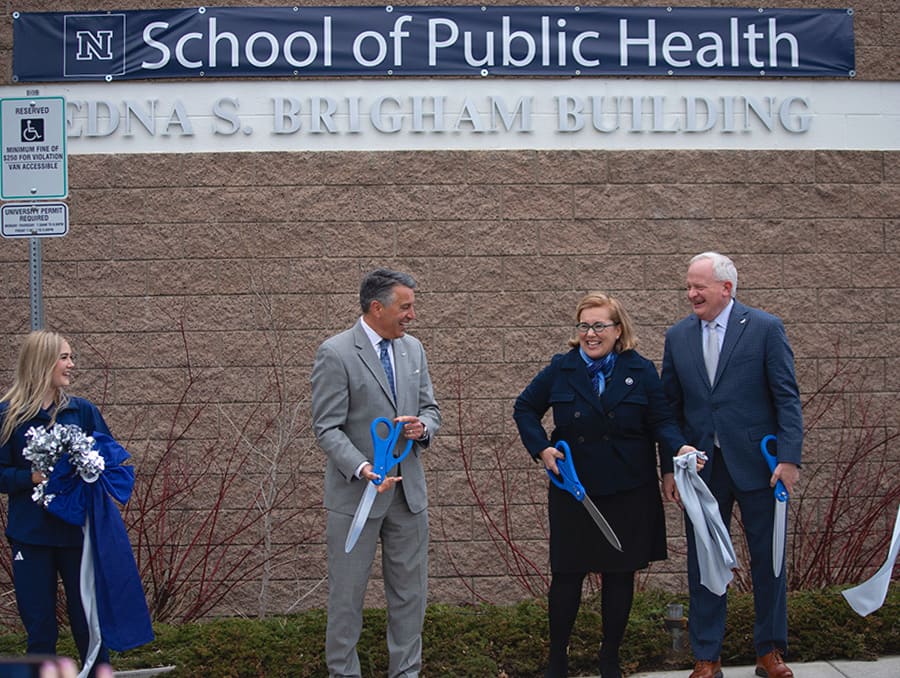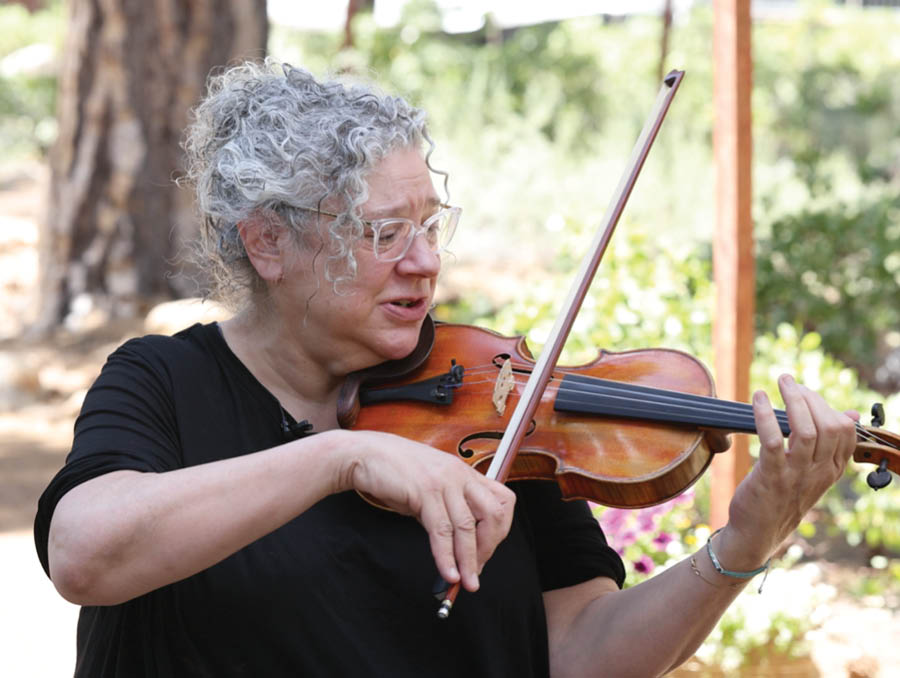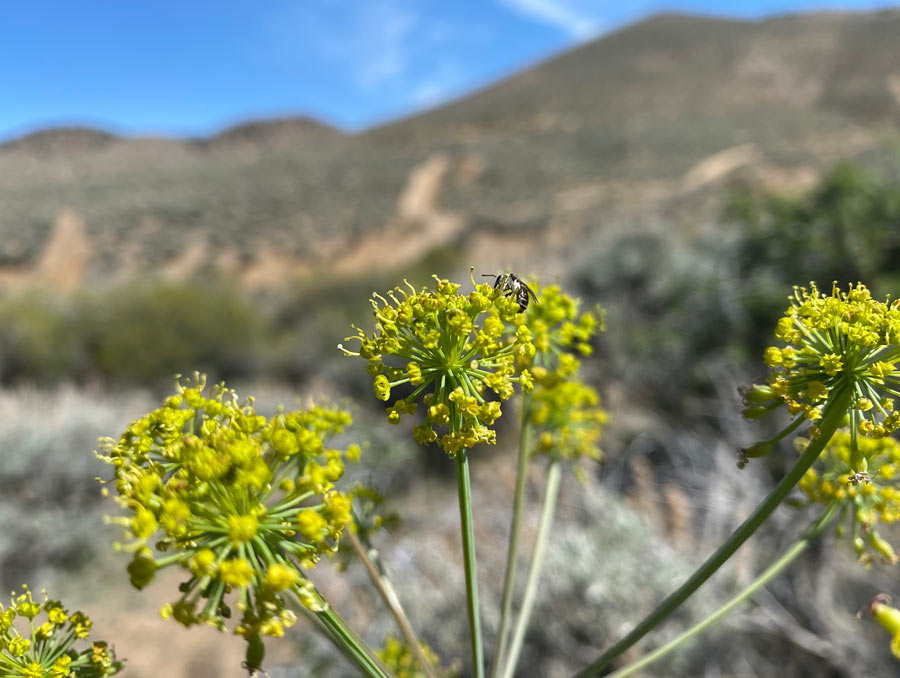University of Nevada, Reno President Marc Johnson had all of the facts and figures, the various task forces and tech transfer possibilities at his fingertips during a presentation he and Cary Groth, director of intercollegiate athletics at the University, made to downtown business leaders on Thursday in an event held at Legacy Hall.
The efforts that the University has been and will continue to make to better bridge the gap between campus and community were impressive.
Yet Johnson hit the nail on the head when he noted at one point that a strong University can make the local business climate stronger - and vice-versa. The more closely the two can become linked, Johnson said, the better it would be for both.
"What we're all about these days is collaboration," Johnson said, noting that the nation's most livable cities are anchored by strong universities that have "smart people, good ideas and collaboration" in abundance. "It is the collaboration that makes the difference between success and non-success."
Johnson and Groth spoke to about 50 members of the Regional Alliance for Downtown. Both stressed that more than ever, cooperation and communication between the University and downtown businesses must remain strong.
"Connecting the town and the University is the message," Johnson said.
To that end, Johnson spent about 15 minutes explaining how the University is building more bridges to ensure a closer relationship.
In January, the Economic Development and Business Relations Task Force was set up in an effort to better define and identify what resources the University can contribute to local business success. The University's task force, chaired by College of Business Dean Greg Mosier, has been charged with pairing the University's strengths in economic and business development with regional needs.
Johnson said this has included encouraging such "big picture" initiatives such as pairing businesses with research endeavors (similar to Utah's "U-Star" project, which has been credited with diversifying Utah's economy, strengthening its university system and creating more jobs), as well as "aligning tech transfer to be a contributor to economic development in our state," Johnson said. "And a big part of this task force is communication ... to tell you what's available to you."
Johnson also noted that the University's Tech Transfer office will continue to play a vital role to "make sure (University research and innovation) gets into the community" and that the office will be a conduit to help build businesses and "be an important point of contact for the community with the University."
Johnson distributed cards to the audience as he spoke, and made note of why he felt they were probably the most important take-away from his presentation. The cards contained contact information for Ryan Heck, the director of the Tech Transfer Office, as well as Sam Males, head of the Nevada Small Business Development Center.
"Call these numbers," Johnson said, "and we will figure out how to make the University work for your business. These are two points of contact anyone in town can call so we can make the University work for you."
Johnson emphasized that the University is contributing to the state's economic diversification in other ways, as well.
"Education builds human capital," he said, noting that with record number of graduates last year (more than 3,500) and a record enrollment this fall (18,000 students), the University was creating a "full pipeline" for a more educated workforce.
He cited a recent study that showed that by 2018, more than 60 percent of future jobs in the U.S. will require a college degree, and that currently, only about 22 percent of all Nevadans hold bachelor's degrees.
"We've got a big gap to fill and our educational institutions are equipped to do this," he said of the state's future workforce. "We are really concentrating on developing a pipeline of workforce development."
Johnson said the University, in addition to providing research, innovation and educated graduates, provides another key input to the region's business success.
"Businesses don't just want workforce development and square-foot-capacity," he said. "They want to come here to live and enjoy living here. This University contributes to the quality of life."
As examples, Johnson cited efforts to build the state's healthcare workforce, by training better prepared teachers who will improve public education, and the multitude of arts and culture events that the University offers on a regular basis.
"If you take away our students and faculty," he said of some of the area's music and culture groups, "you'd hear an echo in the room."
Groth, during her remarks, explained the value of the Wolf Pack athletics program to northern Nevada. She recalled last year's Kraft Hunger Bowl appearance by a 13-1 Wolf Pack football team that brought close to 35,000 Renoites to San Francisco. She mentioned that Nevada athletes now have a 78 percent graduation rate - an all-time high for Wolf Pack athletics.
"It's increased in each of the last seven years," she said.
Although state funding, as across the entire University, has been reduced, Groth said the season ticket revenue has gone up 43 percent in the last five years, and in the last seven years, athletics has raised more than $36 million to fund a number of initiatives, including the construction of an academic center.
The Wolf Pack's move from the Western Athletic Conference to the Mountain West in July 2012 will benefit Nevada's athletic bottom line, Groth said.
"For television revenue and bowl revenue, the highest amount we've ever received (in the WAC), we'll double that (in the Mountain West)," Groth said, also noting that the new conference affiliation will give Wolf Pack athletics increased recognition on "a national scale," will help "in our ability to recruit more quality athletes" and will "create better competition across all sports."
The audience asked several questions of Johnson and Groth. Most pressing for several were the recent news of continued conference shakeups, including reports that the Big East was considering luring current Mountain West Conference member - and longtime Nevada rival - Boise State to its conference as a football-only member. Other reports had suggested that Mountain West rival member Air Force was also being recruited to join the Big East.
"I hope they (Air Force) stay," Johnson said. With nothing set in stone, Johnson said in Mountain West meetings involving the conference's presidents, "I get the sense that we'll have a pretty stable Mountain West."
Johnson said the value of athletics, and the support of Wolf Pack fans, cannot be underestimated.
At the Kraft Fight Hunger Bowl, the sea of Wolf Pack blue that seemed to overtake San Francisco for a January weekend, "all of you in your blue uniforms," as Johnson termed it, made for valuable exposure for the University as a whole.
"You were all part of our recruitment squad," Johnson said. "That told the entire northern California community that the University of Nevada, Reno was a viable option."
Johnson's earlier words stressed the notion of creating a "University-based community," and Groth, near the end, echoed the theme.
"I really like these words," Groth said. "One community, one University, one Pack ... because that's who we are."











